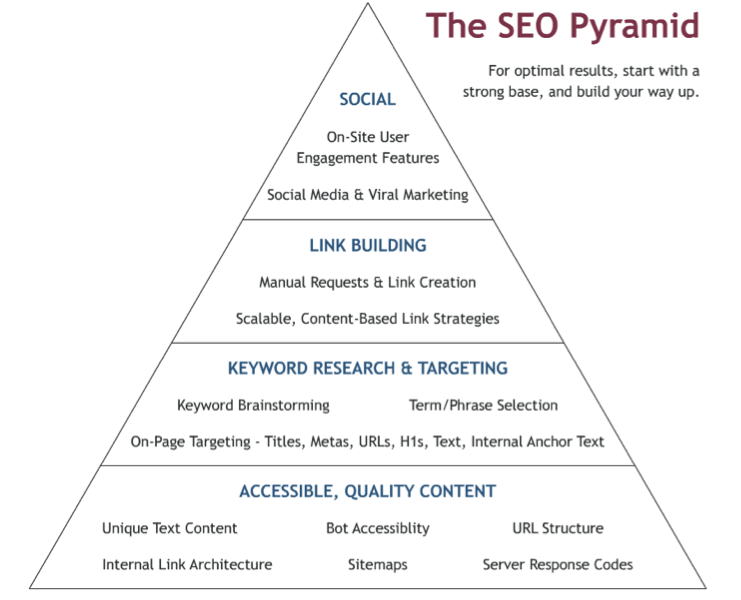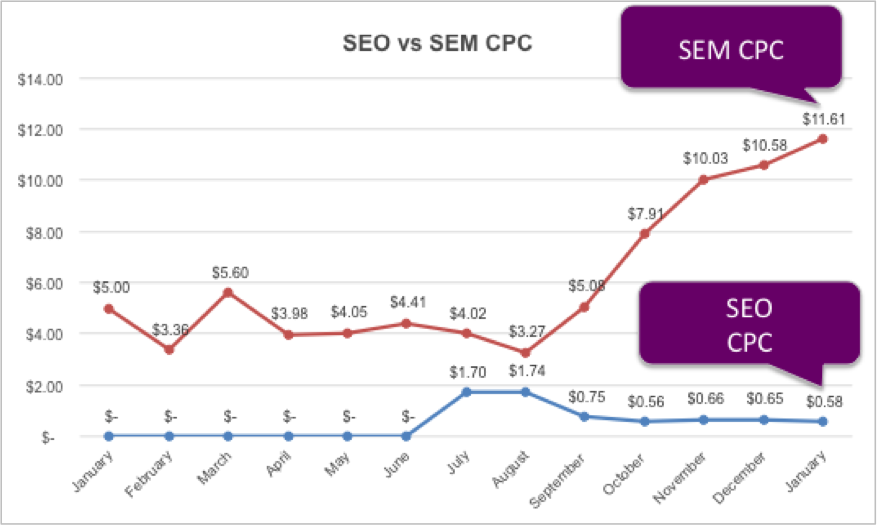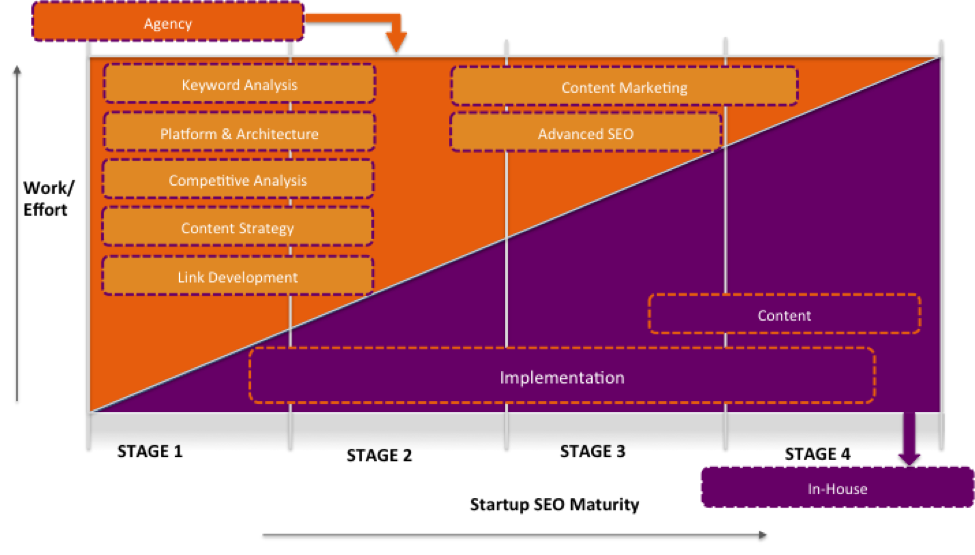According to CBInsights’ latest seed investing report, only 40 percent of seeded companies go on to raise follow-on round of financing. Sixty percent enter the dead pool. Hence, growing a company efficiently and effectively becomes critical in creating a sustainable business, which would eventually make the company a “two marshmallow company”!
“Two marshmallow companies” are companies that invest in long-term strategy and growth versus short-term quick gains. The “two marshmallow” citation relates perfectly with your SEO strategy and the way you think and strategize long-term sustainable traffic growth. So, how can startups get their SEO strategy right from the get-go? Here are some key points to keep in mind while planning your SEO strategy.
#1: Build SEO accessible sites – from the beginning
This is a common pitfall for a number of start-ups because the site wasn't developed with SEO in mind. The homepage is hosted on subfolders (e.g., xyz.com/content/main/home), the URLs are non-SEO friendly (e.g., xyz.com/content/node96?param=keyword) and there are a host of duplicate content issues. Building an accessible site is the foundation of great SEO.
Source: SEOMoz
It’s important to build an accessible site both for users as well as for search engines. Search engines distribute PageRank or Link Equity for every page that they crawl – if there are a number of duplicate pages on a website or if pages are buried too deep within the site structure, the PageRank for those pages gets diluted, which in turn affects the strength of all pages. To understand how this works, let’s take the example below:
Let’s assume a website as PageRank 8 – when search engines crawl this website, it distributes ~85 percent of the link equity onto the linked pages. If within the website you were to have duplicate pages, this would dilute the PageRank proportionately.
In the above example, due to adding a duplicate page “D” onto the site architecture, the overall link equity being passed is reduced from that level onwards.
#2: Deciding with data to drive ROI
Getting an analytics platform and Google Webmaster in place and keeping a close eye on key performance indicators is critical to growing your startup efficiently. Here are a couple of key performance indicators that I would recommend all marketers track (at least) on a monthly basis:
1. SEO visits: non-branded, branded and “not provided”
- Branded: Keywords that contain your brand name.
- Non-Branded: Everything else.
- Not Provided: The notoriously cryptic segment of keywords created to confuse marketers!
- With Google encrypting all SEO data, it’s become tougher to analyze segments of traffic within analytics. We recommend using Google Webmaster Search Query Data to understand how your brand vs. non-brand keyword segments are performing.
Related Class: How to Target and Implement the Right Keywords
2. SEO average order value, conversion rate and eCPC
- Tracking and comparing the above metric with other channels and marketing programs is imperative in making decisions around which campaigns are driving a higher ROI and which aren’t. This helps you decide the areas where you should be doubling down!
- It’s important to get a comparative view of PPC vs. SEO eCPCs to understand which channels are working best for you and drive the highest ROI.
3. SEO number of landing pages driving traffic
- This is an important post-SEO project indicator of how well the projects are working for you. Keeping a track on these metrics helps analyze if your deeper pages are being indexed, ranked and driving traffic.
Related Class: Mobile Search Trends and Best Practices
#3: Hire an Agency vs. In-House
All startups face two common challenges: a) resource constraint and/or b) budget constraint. Due to these two challenges, it becomes difficult to set up a team that just concentrates on all the various elements of SEO – keyword research/data mining, content, platform architecture and link development. Hence, SEO often get de-prioritized.
Getting off the ground with the help of an SEO consultant or agency helps in getting that early start.
The illustration below explains the various stages of a start-up along with areas of SEO you will want to focus on.
Lastly, just to iterate how important it is to devise your SEO strategy early on and continue to invest in it - if done right early on, it can be a competitive game-changer!




